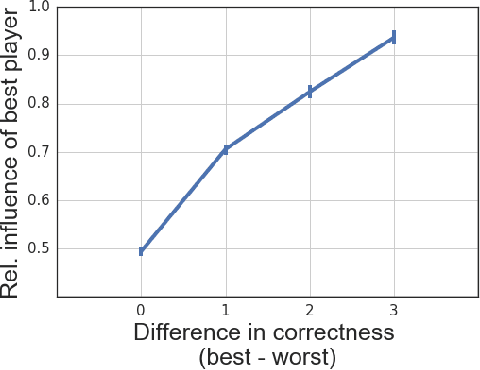When confidence and competence collide: Effects on online decision-making discussions
Paper and Code
Mar 05, 2017



Group discussions are a way for individuals to exchange ideas and arguments in order to reach better decisions than they could on their own. One of the premises of productive discussions is that better solutions will prevail, and that the idea selection process is mediated by the (relative) competence of the individuals involved. However, since people may not know their actual competence on a new task, their behavior is influenced by their self-estimated competence --- that is, their confidence --- which can be misaligned with their actual competence. Our goal in this work is to understand the effects of confidence-competence misalignment on the dynamics and outcomes of discussions. To this end, we design a large-scale natural setting, in the form of an online team-based geography game, that allows us to disentangle confidence from competence and thus separate their effects. We find that in task-oriented discussions, the more-confident individuals have a larger impact on the group's decisions even when these individuals are at the same level of competence as their teammates. Furthermore, this unjustified role of confidence in the decision-making process often leads teams to under-perform. We explore this phenomenon by investigating the effects of confidence on conversational dynamics.
 Add to Chrome
Add to Chrome Add to Firefox
Add to Firefox Add to Edge
Add to Edge